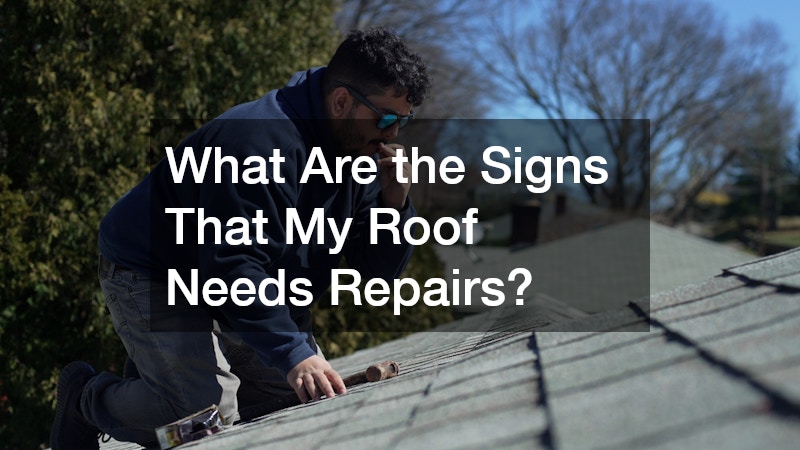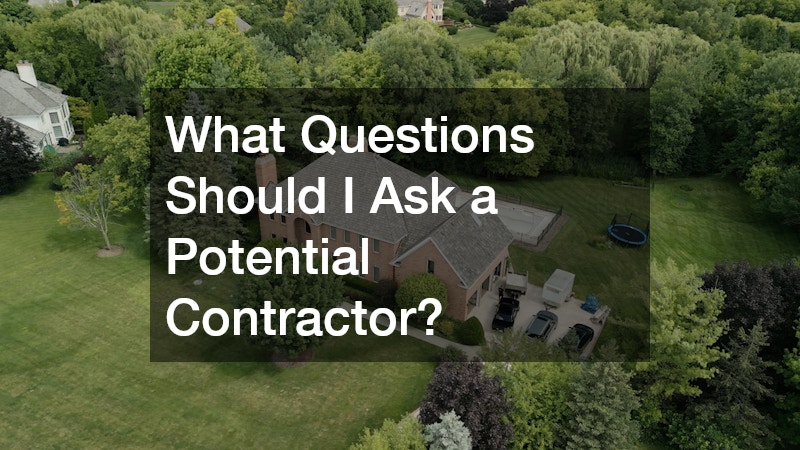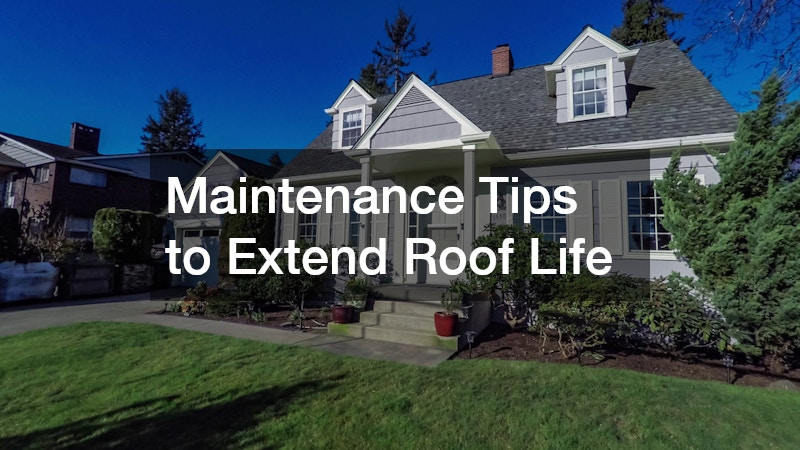Residential roof repair is an essential aspect of home maintenance, yet it can often feel overwhelming for homeowners who aren’t familiar with roofing processes. From identifying the signs that your roof requires attention to understanding how to hire a qualified contractor, there are numerous factors to consider. The right roof repair not only protects your home from weather-related damage but also maintains property value and ensures safety for your family. Whether you’re dealing with minor leaks, missing shingles, or considering a full flat roof replacement, making informed decisions is critical.
What Are the Signs That My Roof Needs Repairs?

Visible Damage
One of the most obvious indicators that your roof needs attention is visible damage. Homeowners should inspect their roofs for missing or broken shingles, sagging areas, curling shingles, or water stains on ceilings and walls. Even minor damage can lead to leaks that compromise insulation and interior surfaces. Damaged flashing around chimneys or vents can allow water to penetrate and cause significant structural issues over time. Regular inspections, especially after storms or harsh weather, can help detect early problems before they escalate into costly repairs.
Age of the Roof
The age of your roof is another key factor in determining the likelihood of needing repairs. Most asphalt shingle roofs last between 20 and 30 years, while metal, tile, or slate roofs can last much longer. If your roof is approaching its expected lifespan, proactive inspection and maintenance are essential. Aging roofs often show signs such as brittle shingles, granule loss, and small leaks that can worsen over time.
Hiring a custom roofer for older homes can be a smart choice since they often have experience working with a variety of roofing materials and architectural styles. Additionally, older roofs may require gutter service updates or adjustments to accommodate modern rainwater management systems. By evaluating the age of your roof and factoring in local climate conditions, homeowners can better anticipate necessary roof repair or replacement projects.
How Do I Find a Reputable Roofing Contractor?
Online Reviews and Ratings
In today’s digital age, online reviews and ratings are a valuable resource when searching for roofing professionals. Homeowners should look for consistent positive feedback across multiple platforms, including Google, Yelp, and specialized roofing directories. Reviews often provide insight into the quality of work, reliability, and communication skills of roofers.
Recommendations From Friends and Family
While online reviews are helpful, personal recommendations remain one of the most reliable ways to find reputable roofers. Friends, family, and neighbors who have recently had roof repair or roofing projects completed can share their firsthand experiences, providing insight into the contractor’s professionalism, adherence to deadlines, and work quality.
What Questions Should I Ask a Potential Contractor?

Insurance and Licensing
One of the most critical questions to ask when hiring a roofing contractor is about their insurance and licensing. Proper insurance coverage protects homeowners in the event of accidents, property damage, or worker injuries during a roof repair project. Licensing ensures that the contractor meets state or local regulatory requirements and adheres to professional standards.
Local roofers often carry liability and workers’ compensation insurance, and reputable companies are willing to provide documentation upon request. Verifying these credentials before starting any project ensures that your home and investment are protected while giving you peace of mind throughout the repair process.
Project Timeline and Costs
Understanding the estimated timeline and costs associated with roof repair is essential for planning. Ask potential contractors for a detailed breakdown of labor, materials, and additional services such as seamless gutters or flat roof replacement. This helps prevent unexpected expenses and delays during the project.
Discussing timelines also allows you to coordinate around weather conditions, especially if your area experiences heavy rain or snow. Local roofers can provide realistic expectations based on experience with similar projects in your region. By addressing costs and timelines upfront, homeowners can make informed decisions and avoid potential misunderstandings or disputes with the contractor.
What Should I Look for in a Roofing Contract?
Detailed Scope of Work
A clear and detailed scope of work is critical in any roofing contract. The document should outline all tasks to be completed, including roof repair procedures, material specifications, and any additional services like gutter service or solar panel installation. This ensures that both parties understand the expectations and responsibilities.
Contracts that lack specific details may result in incomplete work or unexpected charges. By requesting a comprehensive scope of work, homeowners can protect themselves and ensure that the roofing project proceeds smoothly. Local roofers typically provide contracts that clearly define the extent of their services, which helps prevent misunderstandings and ensures a high-quality outcome.
Payment Terms and Conditions
Understanding payment terms and conditions is another vital aspect of the contract. Discuss whether payments are due upfront, in installments, or upon project completion. Be wary of contractors who request full payment before starting work, as reputable companies often structure payments around milestones or completed tasks.
Payment terms should also cover contingencies for unforeseen circumstances, such as additional repairs discovered during the project. Transparent contracts with clear payment structures help protect homeowners and establish trust between the contractor and client, making the roof repair process more manageable and predictable.
How Can I Ensure the Contractor Follows Safety Practices?

Safety Certifications
Safety is a top priority in any roofing project. Ask potential contractors about their safety certifications, including OSHA compliance and specialized training for working at heights. Contractors who prioritize safety reduce the risk of accidents on your property and ensure that the project meets industry standards.
On-Site Safety Protocols
In addition to certifications, observe on-site safety protocols during the project. Workers should use proper safety gear, secure ladders, and follow established procedures for handling tools and materials. Contractors who enforce strict safety measures demonstrate professionalism and reduce the likelihood of accidents or property damage.
Homeowners can also ask about emergency procedures and the company’s approach to managing hazards like loose debris or unstable surfaces. By prioritizing safety, you not only protect the workers but also ensure that the residential roof repair is completed efficiently and without unnecessary risk.
What Materials Are Most Suitable for My Roof Type?
Comparing Materials
Choosing the right materials for your roof is critical for durability and performance. Common options include asphalt shingles, metal roofing, tile, slate, and flat roofing materials. Each has unique benefits, costs, and maintenance requirements. For example, asphalt shingles are cost-effective and widely available, while metal roofs provide longevity and energy efficiency.
Local Climate Considerations
Local climate conditions should heavily influence material selection. Areas with heavy snowfall may require materials that can withstand weight and moisture, while regions prone to high heat or strong winds benefit from heat-resistant or wind-rated roofing products. Understanding these factors helps ensure that your roof repair provides lasting protection.
Local roofers often have experience with regional weather patterns and can recommend materials that perform well under specific conditions. Additionally, considering the impact on seamless gutters, drainage, and potential solar panel installations can further optimize the roof’s overall effectiveness.
How Do Warranties and Guarantees Work in Roofing?
Understanding Manufacturer Warranties
Manufacturer warranties are an important consideration when planning a roof repair. These warranties typically cover defects in the materials themselves, such as shingles, tiles, or flat roofing membranes. The duration and coverage can vary significantly depending on the manufacturer, so it’s essential to review the details carefully. Some warranties may offer protection for 20 years or more, while others cover only limited defects or specific issues like granule loss in asphalt shingles.
Contractor Guarantees
In addition to manufacturer warranties, contractor guarantees are equally important. These guarantees cover the workmanship performed during the roof repair and can help protect homeowners from errors or subpar installation practices. For example, a reputable roofing company may guarantee that shingles are installed properly, flashing is secure, and seamless gutters are functioning correctly.
What Should I Do If I Have a Problem After the Repair?
Contacting the Contractor
Even with thorough planning, issues may arise after the roof repair is completed. If you notice leaks, missing shingles, or problems with gutters or flashing, the first step is to contact the contractor directly. Most reputable roofers have clear channels for post-repair communication and prioritize addressing any concerns promptly.
File a Complaint
If your contractor does not respond adequately to post-repair issues, homeowners may need to escalate the matter. Filing a complaint with the Better Business Bureau, state licensing board, or consumer protection agency can help mediate disputes and hold contractors accountable. Detailed documentation of your roof repair, including the scope of work, payment records, and photos of the issues, is crucial in these cases.
Additional Considerations for Your Roof Repair
Integrating Seamless Gutters
Seamless gutters are often a complementary component of residential roof repair. Unlike traditional sectional gutters, seamless gutters are fabricated as one continuous piece, reducing the risk of leaks and water damage. When combined with proper roof repair techniques, seamless gutters help ensure that rainwater is efficiently diverted away from the home, protecting the foundation and landscaping.
Many local roofers offer gutter service alongside roof repair projects. Coordinating these services ensures that all elements of your roofing system function together effectively. Whether you are addressing water damage or updating an older roof, seamless gutters provide an extra layer of protection and reduce long-term maintenance needs.
Flat Roof Replacement
For homes with flat roofs, flat roof replacement may be necessary instead of minor repairs. Flat roofs require specialized materials and installation techniques to prevent pooling water and leaks. Options include built-up roofing, single-ply membranes, and modified bitumen systems.
A custom roofer experienced in flat roof replacement can evaluate your property and recommend the most suitable materials based on local climate, usage, and budget. Combining flat roof replacement with other services, such as gutter service or solar panel companies’ installations, can enhance the roof’s functionality and extend its lifespan. Proper planning and expert execution are key to a successful flat roof project.
Considering Solar Panel Installations
If you are planning to install solar panels, coordinating with solar panel companies during roof repair is crucial. Roof integrity is critical to supporting solar installations, and repairs or replacement should ideally be completed before mounting panels.
Experienced local roofers can work alongside solar panel companies to ensure that your roof is structurally sound and ready for energy upgrades. This collaboration helps prevent potential damage during solar panel installation and maximizes the efficiency and lifespan of both your roof and solar system. Planning for solar panels in conjunction with roof repair is a forward-thinking strategy for energy-conscious homeowners.
Maintenance Tips to Extend Roof Life

Regular Inspections
Routine inspections are vital for maintaining the longevity of your roof. Schedule inspections at least twice a year and after severe weather events. Inspect shingles, flashing, gutters, and any penetrations for signs of damage or wear. Regular monitoring helps identify minor issues before they escalate into major repairs.
Local roofers can provide professional inspection services, offering recommendations for residential roof repair or preventive maintenance. Including seamless gutters and attention to flat roof areas ensures that all aspects of your roofing system are performing optimally. Proactive inspections reduce repair costs and extend the life of your roof.
Cleaning and Gutter Service
Proper maintenance of gutters is integral to roof health. Ensure gutters are clear of debris, leaves, and moss to prevent water buildup that can damage shingles and the roof deck. Seamless gutters, in particular, require less frequent maintenance but still benefit from routine cleaning.
Many roofing contractors offer combined gutter service as part of residential roof repair projects. Maintaining both the roof and the gutter system ensures proper water drainage, protects the foundation, and prevents costly water damage. Consistent care prolongs the overall lifespan of your roofing investment.
Choosing the Right Local Roofers
Evaluating Experience and Specialization
When selecting local roofers, consider their experience and areas of specialization. Contractors who focus on residential roof repair, flat roof replacement, seamless gutters, or custom roofer services are more likely to deliver high-quality results. Review past projects and ask for references to confirm expertise.
An experienced contractor can identify potential issues specific to your roof type, materials, and local climate conditions. By choosing roofers with proven capabilities, homeowners increase the likelihood of a successful, long-lasting repair project.
Comparing Quotes and Services
Obtaining multiple quotes allows you to compare pricing, materials, and service offerings. Don’t make decisions based solely on cost; consider the quality of materials, warranty coverage, and contractor guarantees. Look for contractors who offer a comprehensive approach, including roof repair, gutter service, and collaboration with solar panel companies if needed.
Comparing services ensures that you hire local roofers who meet your expectations for professionalism, reliability, and expertise. This careful selection process reduces risks and ensures that your residential roof repair project is completed efficiently and effectively.
Residential roof repair is an essential aspect of homeownership that requires careful consideration and planning. From recognizing visible damage and assessing the age of your roof to finding reputable local roofers and asking the right questions, homeowners have multiple steps to ensure their roofing projects succeed. Understanding insurance, licensing, safety protocols, and materials selection further protects your investment and ensures quality workmanship.
Warranties, contractor guarantees, and proper post-repair maintenance help safeguard your home long after the initial work is completed. By integrating additional services, such as seamless gutters, flat roof replacement, and coordination with solar panel companies, homeowners can enhance their roof’s durability, efficiency, and overall performance. With thorough research, proactive planning, and careful contractor selection, residential roof repair can provide lasting protection and peace of mind for your home, family, and property value.




